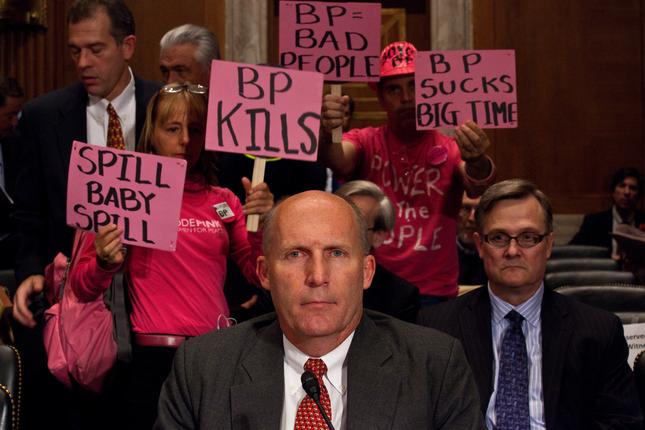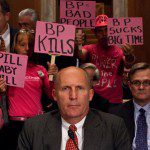Congress Vs. Corporations
By • July 26, 2011 0 1790

I recently had a ringside seat to some of the best in political theater. (To be precise, I wasn’t actually “ringside” but in the center of the ring in the photographer’s pit, and my “seat” was the floor.) I am referring to the separate hearings this month on Capitol Hill between members of the Senate and prominent figures from Wall Street and the oil industry.
These hearings represented but another chapter in the century’s old tug-of-war between advocates of free markets against those pushing for stronger regulation. Earlier chapters were punctuated by the breaking up of the big corporate trusts by Teddy Roosevelt, and the establishment of the Securities and Exchange Commission (SEC) as a response to abuses that precipitated the Great Crash of 1929 (and the subsequent Depression). Both of these measures provided firm underpinnings for the long-term health and growth of our economy and society. Today, after an extended period of relaxed regulation and government oversight, another major reexamination is certainly in order.
The behavior of Goldman Sachs and BP was predictable. The officers of any corporation owe their allegiance first and foremost to their shareholders, and their goal is to maximize profits to those shareholders. Nothing implies that these corporate goals have to be consistent with the American public interest.
BP, of course, is primarily owned by foreign shareholders. But much of the American public would be surprised at the large degree to which foreign interests own shares in most major American-based corporations. And many do not appreciate that the oil BP will produce in deep water, for which it pays minimal royalties to our government, is destined for the international oil markets. The pollution that these wells produce, of course, stays right here in the USA.
Goldman Sachs derives much of its profit from its trading desk, where many believe it uses its market-making position to unfair advantage and to the detriment of its customers. Many of these activities, while creating profits for Goldman Sachs, provide questionable benefits to the overall economy.
It’s all about accountability and responsibility. An economy functions best when resources are optimally allocated, so costs to the environment must be born by the polluters. Unfortunately, ethical behavior on Wall Street often takes a back seat to the allure of big money. To quote James Madison, “If men were angels, no government would be necessary.” Some have argued that our fragile economy cannot tolerate further regulation, but the opposite is certainly true.
The author, a former mutual fund manager, contributes photographs to The Georgetowner and The Downtowner.
- Protesters at BP’s oil spill hearing. | Jeff Malet
- Jeff Malet



